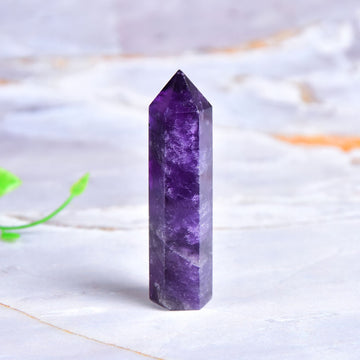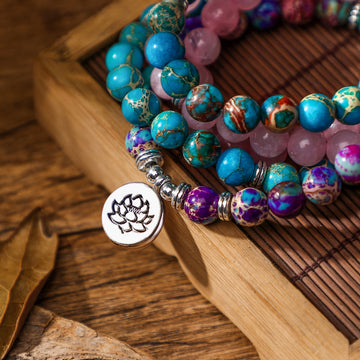You wouldn’t be surprised if we told you meditation is good for you. With the hundreds of studies showing how it decreases stress, helps to stay calm, allows for mental clarity and focus, aids in heart disease prevention, rewires your brain chemistry and just makes you feel good…it’s nothing new. Plus the ancients who lived by it have known this all along.
But drum roll please….
It turns out, that meditation can actually physically change your DNA.
In a recent study published in the Canadian scientific journal Cancer, the use of mindfulness meditation was shown to have an impact on certain types of DNA in breast cancer patients.
Specifically, it was the length of telomeres, which are tiny protective caps on the end of chromosomes, which were physically altered as the result of mindful meditation.
Lead investigator Dr. Linda E. Carlson and her colleagues took distressed breast cancer survivors and divided them into three groups. The first group was randomly assigned to an 8-week cancer recovery program consisting of mindfulness meditation and yoga; the second to 12-weeks of group therapy in which they shared difficult emotions and fostered social support; and the third was a control group, receiving just a 6-hour stress management course.
A total of 88 women completed the study and had their blood analyzed for telomere length before and after the interventions. Telomeres were maintained in both treatment groups but shortened in controls.
So what do telomeres have to do with anything?
Basically, shorter telomeres tend to correlate with ailments like cancer, heart disease, and diabetes.
So, if we can manage to keep these microscopic structures from shrinking, our overall health is better off. The importance of telomere length has been known for years since back in 2008, a study by Dr. Dean Ornish found that lifestyle changes such as stress management, aerobic exercise, and a vegan diet had an impact on telomere length in prostate cancer patients.
This new correlation of telomere length with this age-old Buddhist practice gives people the power to their own health with meditation.
So why isn’t everyone meditating?
Mindful therapist Dr. Karen Wegela says many of her patients simply say they “just don’t seem to get around to it.” It is hard for people to “get to the cushion” and even harder sometimes to arrive at the place of presence when you do finally sit down.
It’s not the zen-ness of meditation that isn’t luring, it’s the fear of how to get there.
That’s where guided meditation can be useful. Whether you are new to meditation, out of practice or a regular meditator, guided meditations easily allow you to tap into the power of meditation. With the voice of an expert, they can take the effort out of “getting to the cushion”. Plus, guided relaxation can actually change body chemistry.
In a study done by Carole Holden-lund and published in Research in Nursing Health, the effects of an audiotape series employing relaxation with guided imagery meditation on the psychophysiologic stress response and wound healing in surgical patients was observed.
It was found that the group who underwent the guided relaxation meditations exhibited significantly less state anxiety, lower cortisol levels one day following surgery, and less surgical wound erythema than the control group.
Don’t just take our word for it – try a Project:Yourself Deep Dive guided meditation for yourself!
Our unique guided meditation audios infuse ancient wisdom and modern technology in two unique steps:
1) First, we use a blend of ancient Vipassana, Vedic and Yogic mindfulness philosophy to create blissfully immersive imagery for deeper states of relaxation and spiritual connection (the secret is in the careful choice of words, flow and scenarios we take you through).
2) Then, we enhance the vocals with space-age binaural beats technology that synchronizes with your brainwaves, dramatically reduces mind chatter, and guides you steadily and smoothly into a deeper state – even if you’ve never meditated or can’t meditate consistently.
Share your thoughts below! What’s the biggest benefit you’ve achieved from meditating?



































